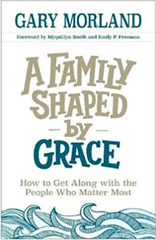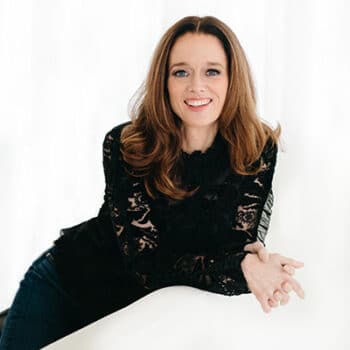Emily P. Freeman and Myquillyn Smith (The Nester) describe their dad as a believer who recognizes his sufficiency in Christ and a father who loves his family well. Gary Morland, however, describes himself as “a guy who should have died but didn’t, with a wife who should have left but stayed.” Gary’s story is one of an alcoholic rescued and a family reunited, all in the love and mercy of Christ. The power of God’s grace and forgiveness in Gary’s family is breathtaking. It is a grace to welcome Gary Morland to the farm’s front porch today…
We think of family as the ones we see now, along with those gone before us whose memories and stories we share.
But our families are bigger than that. Your entire family, going back generations, is a mighty river. Upriver goes back further than any scrapbook can hold. We can’t see that far. We only know that this spot in the river came from back there.
We can’t see very far downriver either. We can’t get high enough to see where it ends; we only know that what’s in this spot today will keep flowing in that direction.
We are a part of something much bigger than us, even though the section of river we’re in right now seems plenty big.
We paddle this part the best we can, usually without schooling or guides, learning to navigate the rapids as we go.
One of the many rapids in my family? My great-grandfather abandoned his family. Then, years later, one of his sons killed himself.
I don’t know the whole story. I only heard references to it, and I never asked any questions. I guess I thought it was none of my business.
Today, I think the story could have served as a meaningful connection between family members sharing grief and life lessons.
But, like many families, we didn’t bring up shameful or bad things.
I assembled the pieces over the years from cryptic comments made by family members who knew more than they wanted to say.

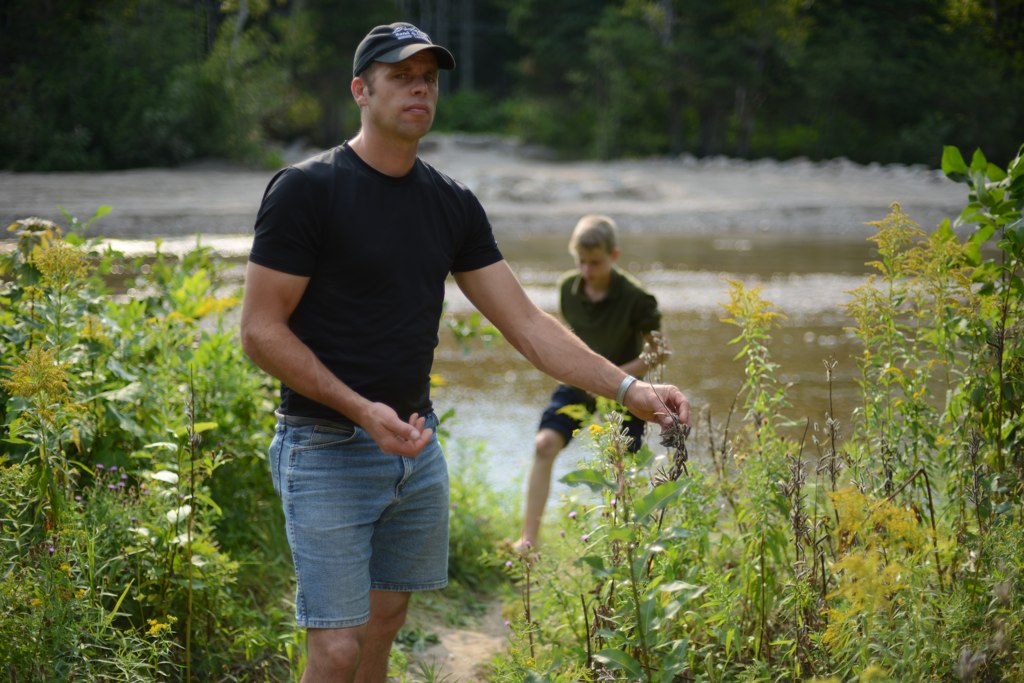


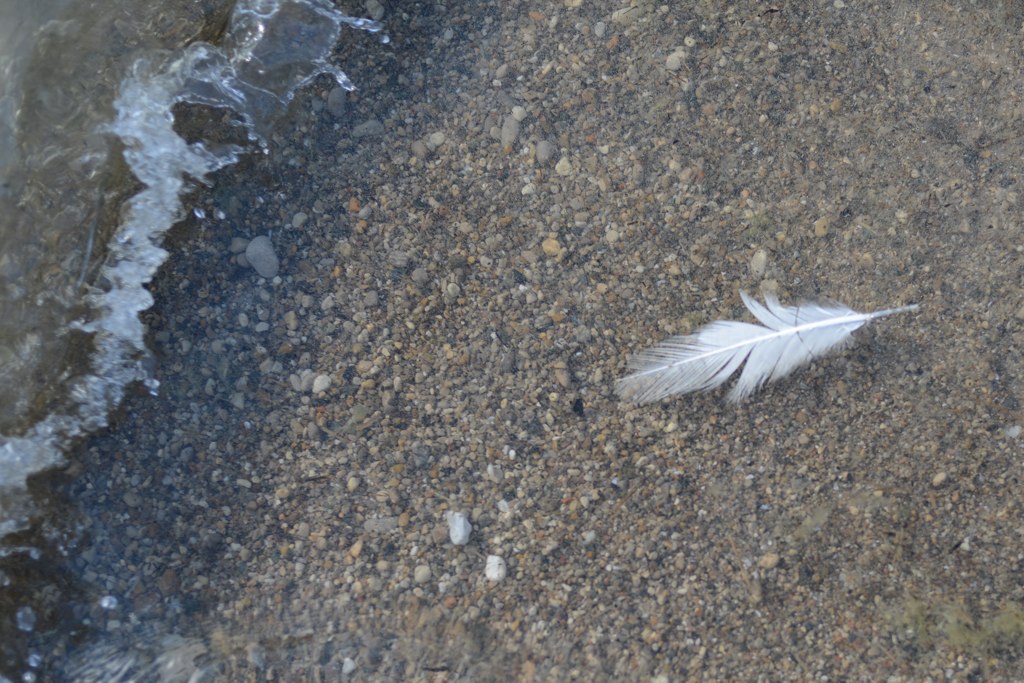


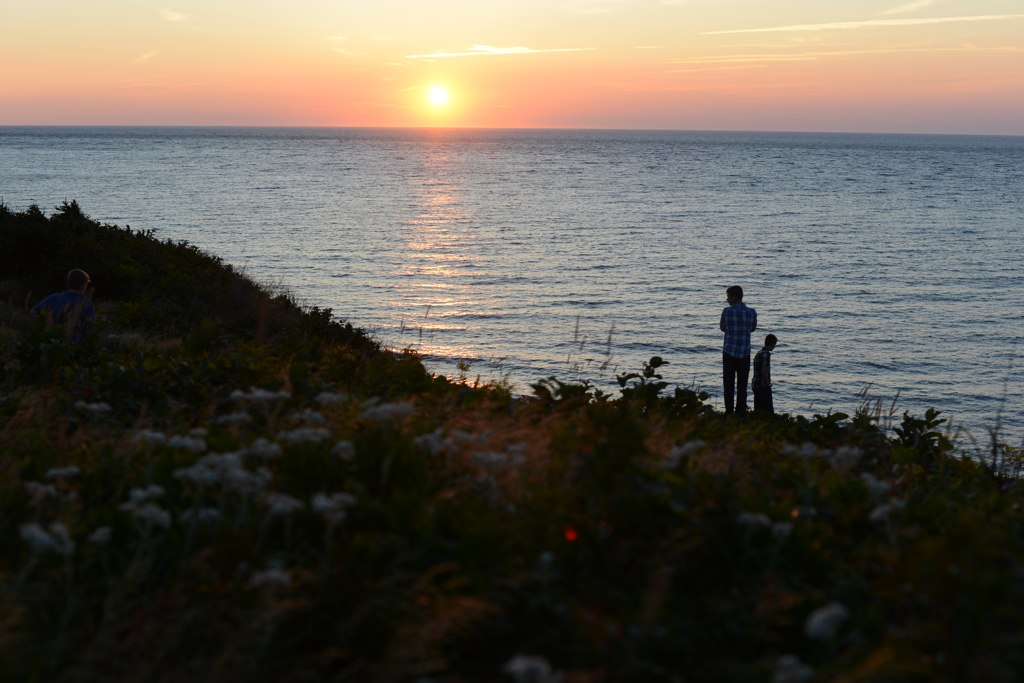
My dad was twelve years old, living with his mom and his dad, Pop (my grandfather). Pop also supported his brother and his mom, who lived with them.
One Sunday everyone except Pop’s brother went to church. When they got home, they couldn’t open his bedroom door. Something was wedged against it. Closing that bedroom door was the last thing he did while he was alive.
Was his suicide related to Pop’s dad abandoning his family years earlier when Pop and his brother were kids? Who knows.
But the influence of the abandonment was still being felt decades later in my family growing up.
My kid sister would get upset with our dad, and Mom would tell her, “Don’t be too mad at your dad. Look who raised him—a guy who felt rejected and didn’t have anyone to raise him.”
When Pop became an adult, he changed the spelling of our last name to forever separate himself from his dad, as if to say, “Since you wanted to leave, you’re never coming back. You won’t find us.” The echo of this is heard generations later every time I spell our name for someone: “That’s M-O-R-L-A-N-D with no E.”
But it’s only an echo.
Our family was not destined to a straightline repetition and payment for one person’s sin.
Your family isn’t either.
The consequences of what happened upriver have altered our family, but they have not trapped us into a destiny.
Your parents and family are in the boat with you.
You get into a family that’s already flowing. They had parents and a family too, and on back it goes.
If we can blame our mom or dad or anyone else in our immediate family for how things turned out, they can do the same. If we pass something upriver, they can too. And on back upriver the blame goes.
Much of what our families become is because we’re part of what has gone before. We can’t escape it:
“I may __________, but so did my dad; I learned it from him.” True.
“My parents never taught me __________.” True.
“My mom never showed me __________.” True.
“My dad never __________; he always just __________.” True.
“My uncle __________ me, and so now I’m __________.” True.
These things are all true, and they may have affected us and changed the course of our lives.
But if I blame my family, and push responsibility for who and what I am onto them, the blame can go all the way upriver.
It goes downriver too.
From Brenda and me, through Myquillyn and Chad and Emily and John, through their kids and families, and their kids’ kids and families, the river flows. Each of them could pass the blame back to Brenda and me.
Most of us probably don’t consciously blame previous generations for how we turned out. But it’s a very subtle temptation because it gives us an excuse for our faults and failures.
It takes a lot of courage to face who we are and a great deal of responsibility to deal with it.
Blame lightens the load a little bit, doesn’t it? Saying to yourself “If only this hadn’t happened” sometimes makes life more bearable.
But blame is irrelevant. It only matters if you want an excuse for not taking responsibility for yourself.
It is helpful to understand the things that have contributed to your story, to what happened in your family upriver. These things may help to explain who you are today.
But it is your fault alone if you allow those circumstances to keep you from being all you can be.
You can stop the chain reaction.
Accept your family (or lack of one) as within God’s overall will for you, and accept His ability— and promise—to use it for good. Then let Him.
My dad’s dad (Pop) was an alcoholic. My dad was an alcoholic. I am an alcoholic. My children are not alcoholics.
If God can stop that chain with me, He can stop whatever is plaguing you with you.
All we have is our part of the river, right here, right now.
We put a canoe into this family story when we are born, and our canoe pulls to shore when we die.
But what we do while in the river—our actions, attitudes, words, values, accomplishments—will roll on.
They are our legacy.
Gary Morland is a professional communicator with more than thirty years of radio experience sharing his own life story and helping others share theirs. As a twenty-five-year sober alcoholic, he describes himself as “a guy who should have died but didn’t, with a wife who should have left but stayed.”A Family Shaped by Grace: How To Get Along with the People Who Matter Most will transform your family culture and your family legacy — starting with yourself. As a teenager, Gary lived in an unhappy, dysfunctional family characterized by addiction and disharmony. When he started a family of his own, he brought with him those same destructive patterns. Yet he sensed there must be a way to have a family shaped by acceptance and grace, a family that was loving, whole, and at peace with one another. The problem was, he didn’t know how. In this life-giving book, Gary shares his journey of discovering the timeless tools of family peace that will help so many of us.
[ Our humble thanks to Baker for their partnership in today’s devotion ]

